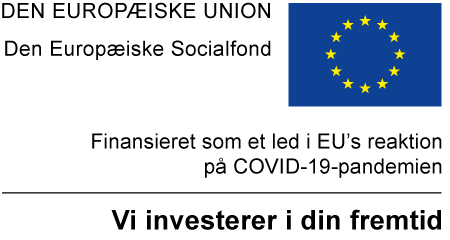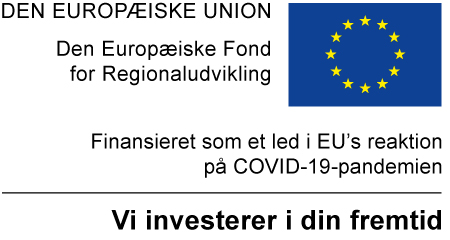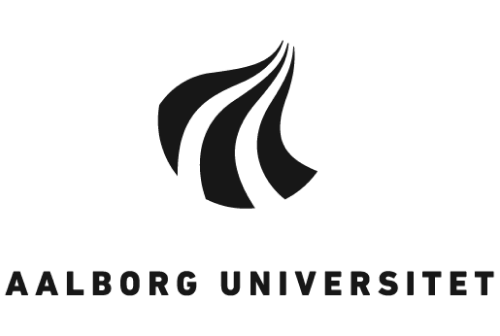Aalborg will shortly be the host city for a large international conference with participation from the royal house, Christiansborg and the EU Commission. The theme is how we capture, store and utilize CO2. It is no coincidence that the convention takes place in North Jutland
By representatives from CO2Vision; Per Bach Laursen, mayor of Vesthimmerland Municipality; Mogens Christen Gade, mayor of Jammerbugt Municipality and Lasse Frimand Jensen, mayor of Aalborg Municipality
The doors to an important and much-needed conference will soon open: the EU's Carbon Capture and Utilization and Storage (CCUS) Forum. The event takes place in the cultural center Nordkraft in Aalborg and is supported by several supplementary events in the city. The list of participants in itself underlines the importance of the convention's theme. HRH The Crown Prince will participate when the conference begins on 27 November, and he will be joined by climate, energy and supply minister Lars Aagaard and EU commissioner for energy Kadri Simson, among others. Together with a large number of decision-makers, experts and representatives from business etc. must they help come up with proposals for how we as a region, nation and world community pave the way for the handling of CO2. With global temperature increases and a growing number of climate-related natural disasters, the need for a CO2 strategy is becoming apparent. There are also very good and clear reasons why the event takes place in North Jutland.
Knowledge, space and much more
It is no coincidence that we have been able to convince the organizers that the conference should take place in North Jutland across several actors in North Jutland. On a national level, the region has been appointed to work with the capture, storage, transport and use of CO2, which unfolds through the lighthouse project CO2Vision. The designation has, among other things, North Jutland obtained due to the highest emission of CO2 per inhabitant in Denmark - primarily due to the emissions from the cement company Aalborg Portland. But it is also connected to the fact that Northern Jutland as a region has a number of unique local resources, which form an incredibly good foundation for CCUS in particular.
One of the world's best-rated engineering universities, Aalborg University, is located here, with a large number of leading experts in the field - not least in relation to green fuels and Power-to-X. It is also a university that excels when it comes to cooperation with the surrounding community; the business community, municipalities, etc. North Jutland has an ideal geographical location with suitable areas for wind turbine and solar energy plants; both necessary points of departure for CCUS, since green power must be used for the associated processes. Both in the test phase and when the scaled-up capture of CO2 is launched, there is a need for a number of industrial point sources that emit CO2. Here, as I said, we have Denmark's largest CO2 point source, Aalborg Portland. The company actively participates in the testing of technologies that are part of the CCUS chain. And it does not stand alone as an obvious CO2 source.
In North Jutland, we have a large number of biogas plants and industrial companies, which are also suitable starting points for CO2 capture. We also have five industrial ports, all of which can play a major role, e.g. CO2 terminal, green filling station or growth center. We have long since begun the preparatory work through a number of strong test and demonstration projects within the CCUS field. Here, ventures such as Green Port Scandinavia can be highlighted, where ambitions are to establish Europe's largest CO2 hub for importing and shipping large quantities of CO2 at Hirtshals Harbour. Here we can point to initiatives under the auspices of the Port of Aalborg, where they are in the process of creating a test center for e.g. green fossil-free fuels. The Hydrogen Valley project, which uncovers the potential to balance the electricity grid by converting excess produced energy into hydrogen, is also a strong example.
We have to deal with both the chicken and the egg
Although we are well underway with the CCUS process in North Jutland, the task list is still long. If Northern Jutland is to develop into an international leading region within CCUS, there is a need for us to succeed in two things: On the one hand, we must have formulated and conveyed a common vision for how our green CCUS adventure should look in 2050. We are in full swing with this work in the business lighthouse CO2Vision, but we are not yet there. On the other hand, we must have established a stronger, more constructive and ambition-driven dialogue with Christiansborg, energy infrastructure managers and the transmission and distribution companies to establish the necessary electricity, CO2 and hydrogen infrastructure to support North Jutland's CCUS visions towards 2050. Here we are not at the finish line either.
If North Jutland as a region is to achieve a status as an international front-runner within CCUS, we will have to deal with both the "chicken and the egg": without coherent CCUS ambitions, we will have no infrastructure. And without infrastructure, we cannot fulfill our ambitions. Cracking that code will not be an easy task, but we are prepared to take on the task. Together, we must have developed the important CCUS setup, which can be part of the solution to the global climate crisis. And at the same time, we can secure both North Jutland and the rest of the country jobs, investments and a central role in the global green transition. We look forward to throwing ourselves into this work in CO2Vision.
About the conference CCUS Forum
The Ministry of Climate, Energy and Supply will hold, in collaboration with the European Commission, the third edition of the EU Carbon Capture, Utilization and Storage (CCUS) Forum on 27 and 28 November in Aalborg.
The purpose of the conference is to bring together stakeholders from the industry, Member States, EU institutions, NGOs, academia and others. with a view to providing the framework for meaningful discussions on the deployment of CCUS technologies in Europe and how to accelerate this.
450 players and authorities from the entire CCUS industry will discuss everything from national strategies and standards to infrastructure and storage options. In addition, visits to test sites have been arranged - i.a. where a pilot plant for CO2 capture will be inaugurated.











